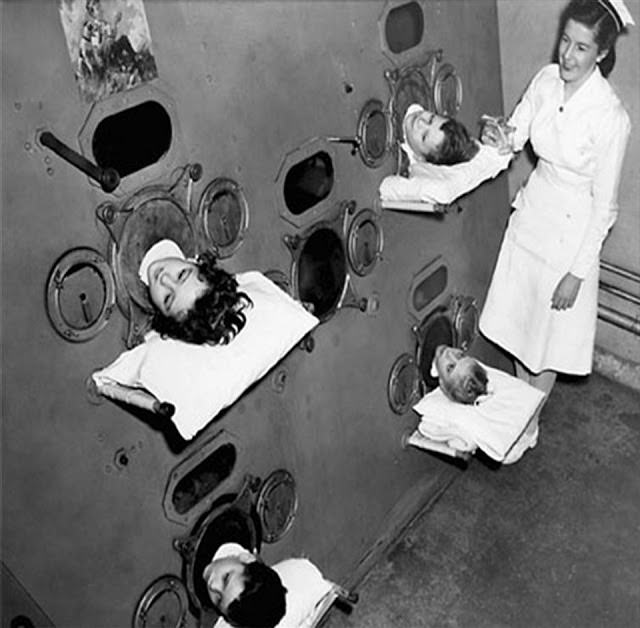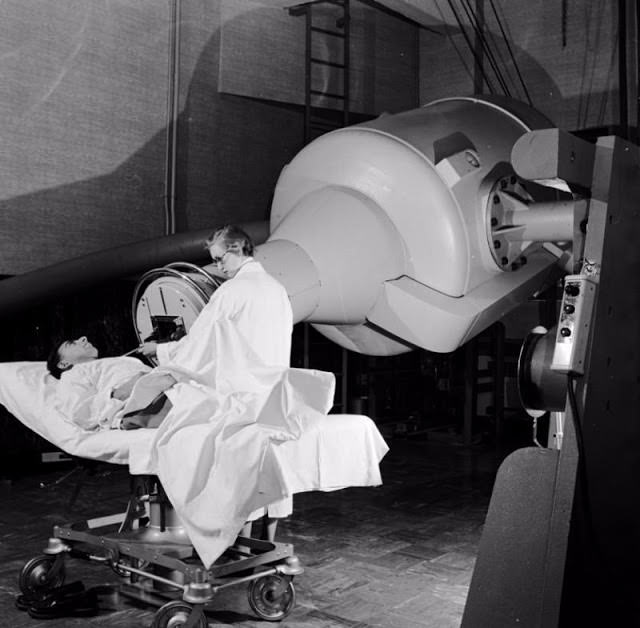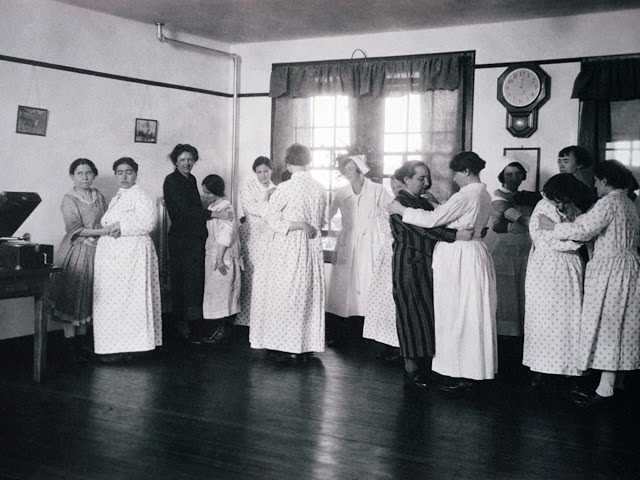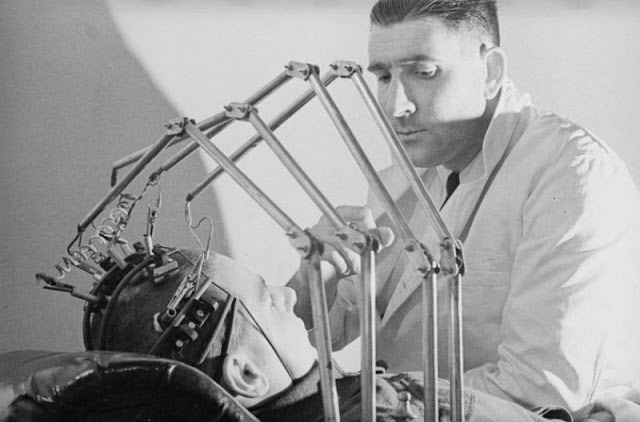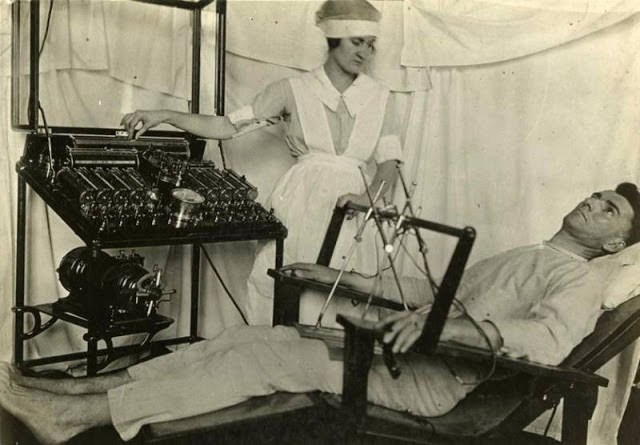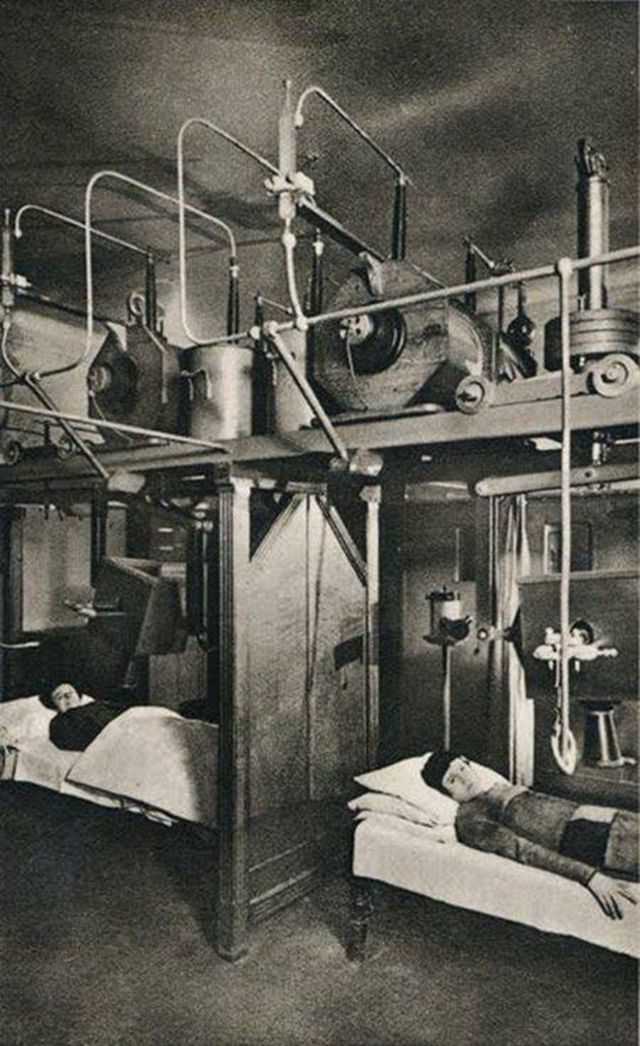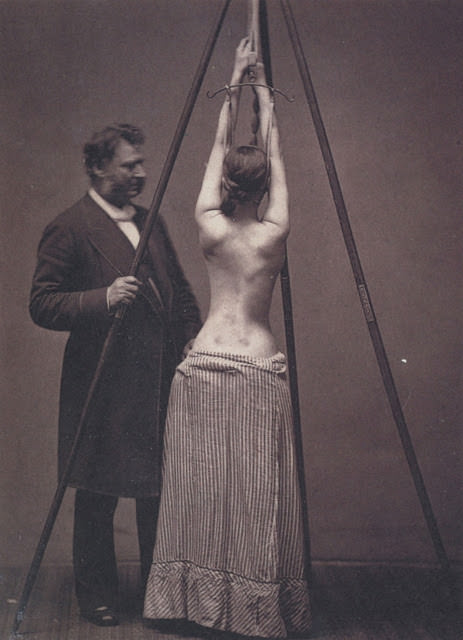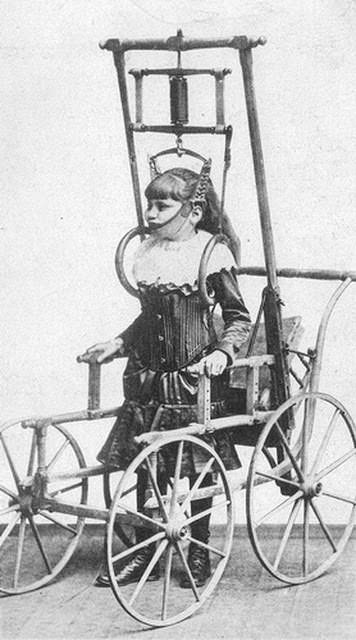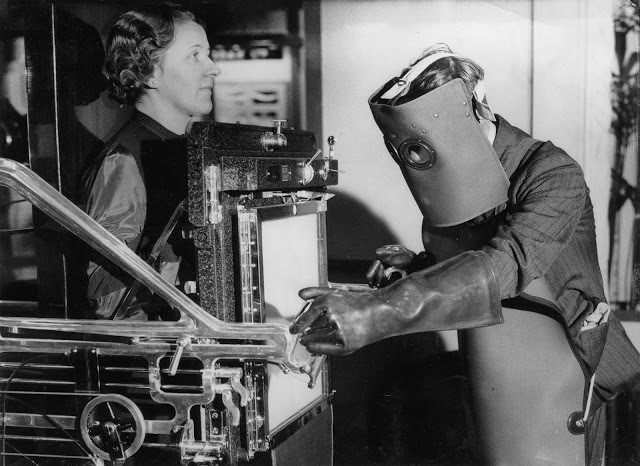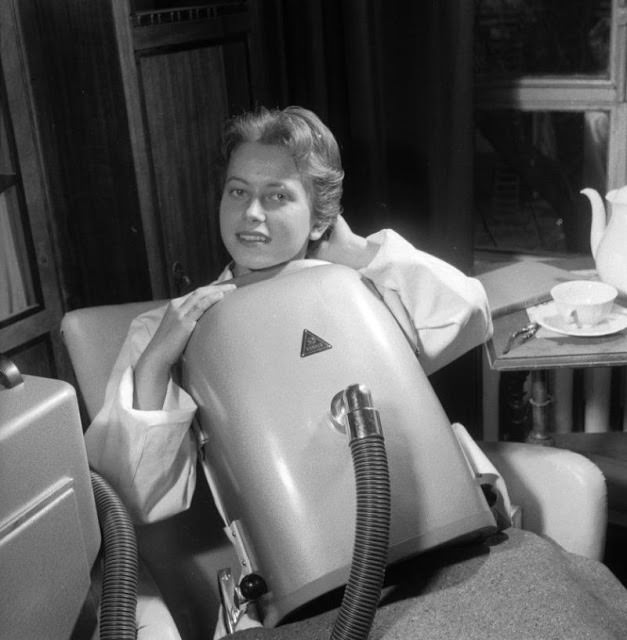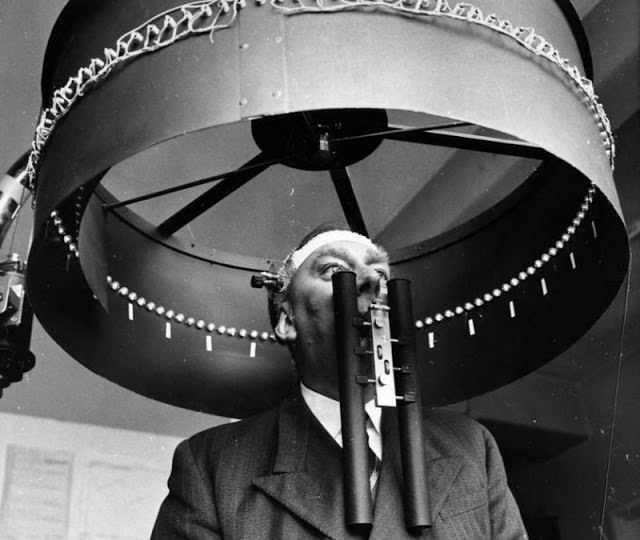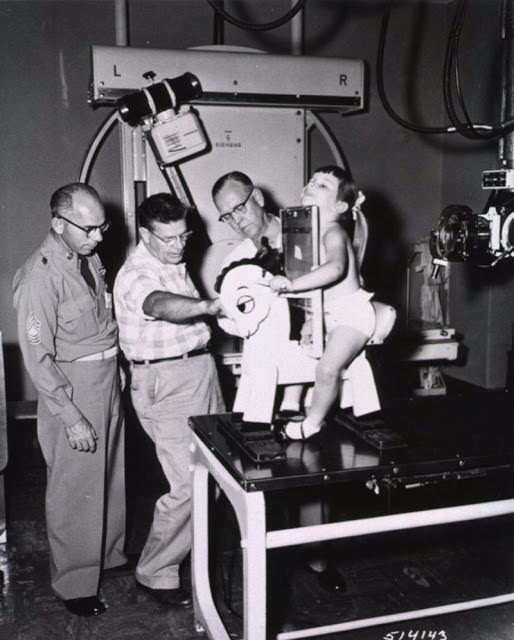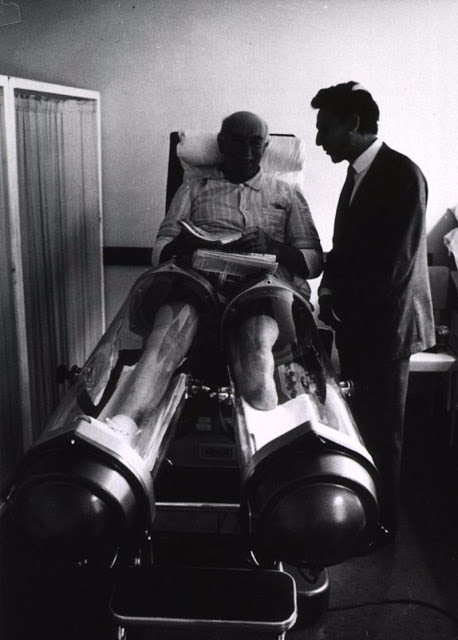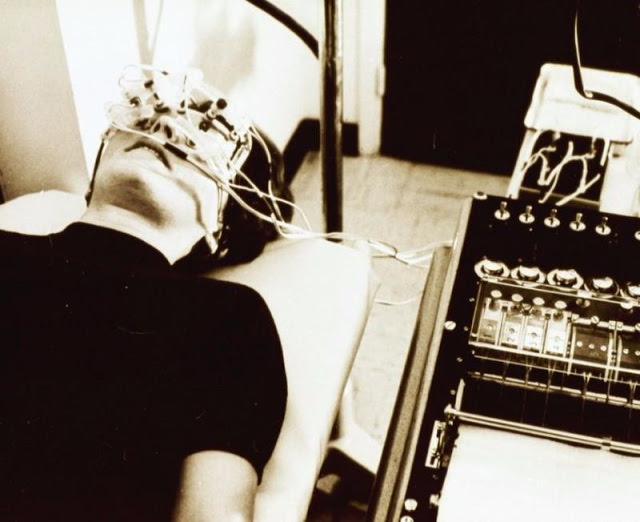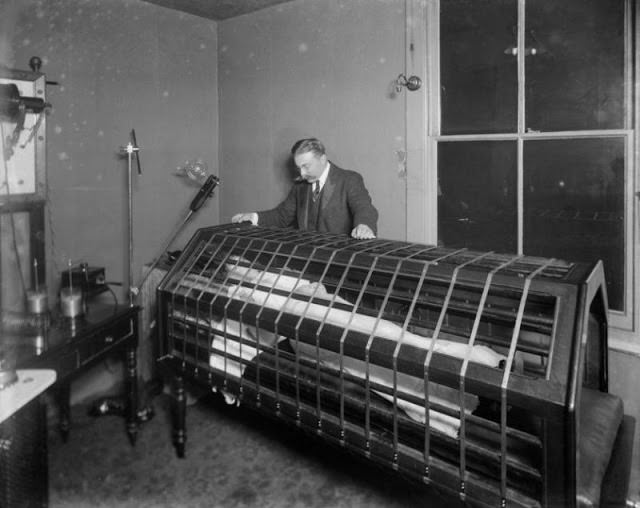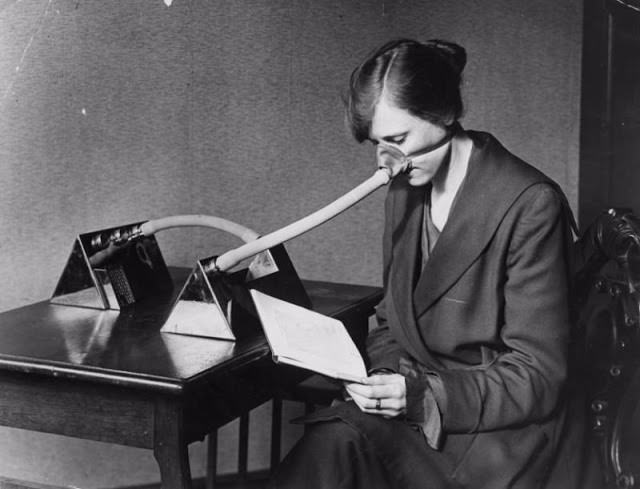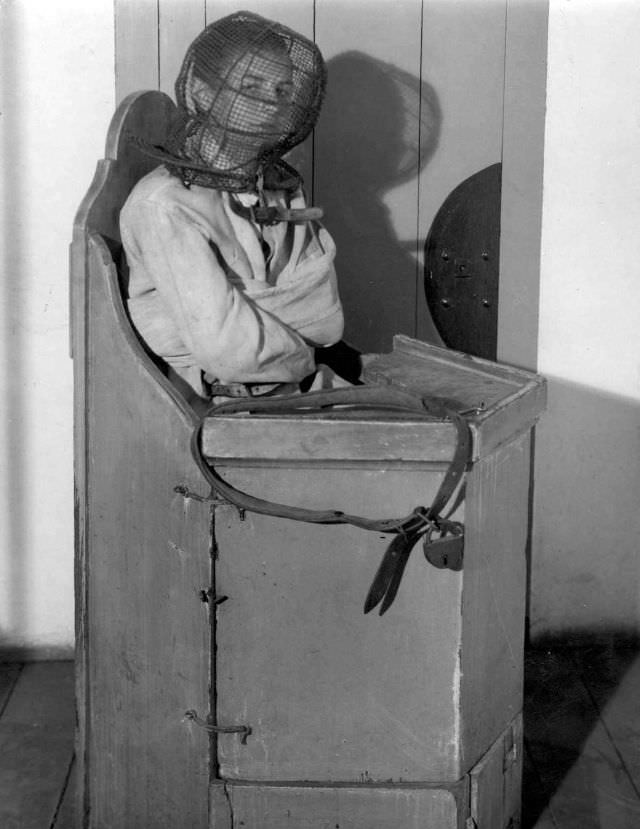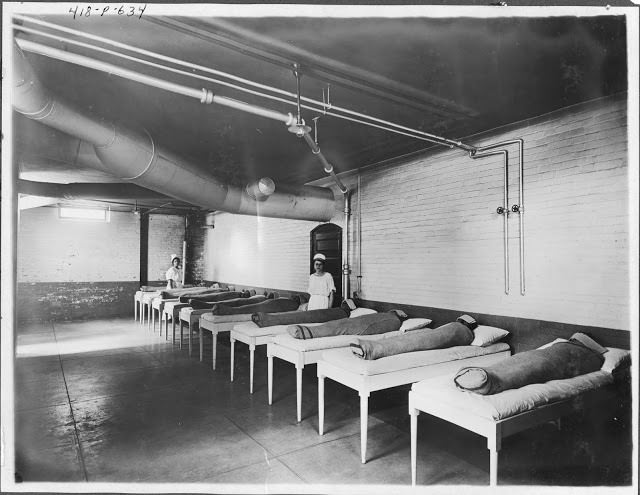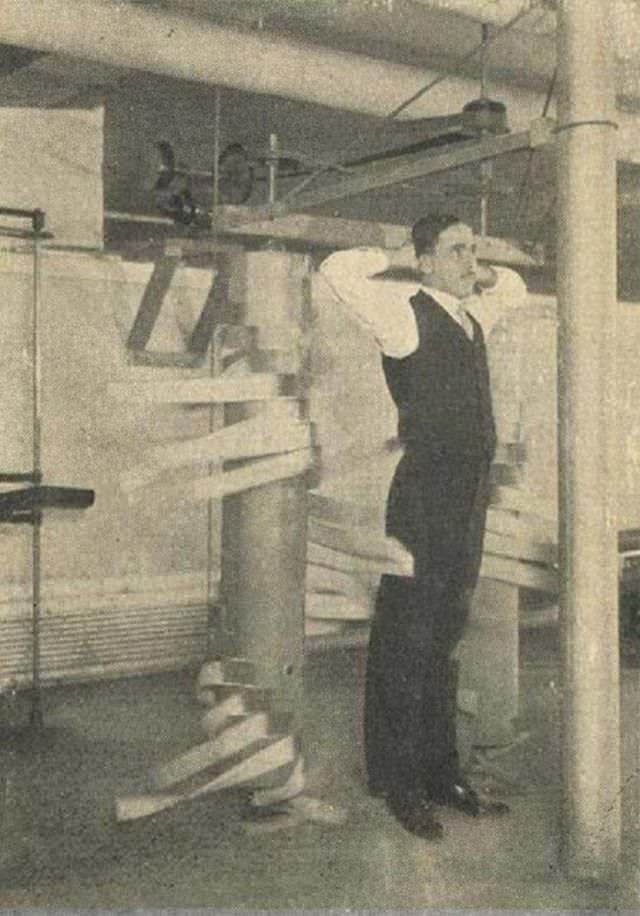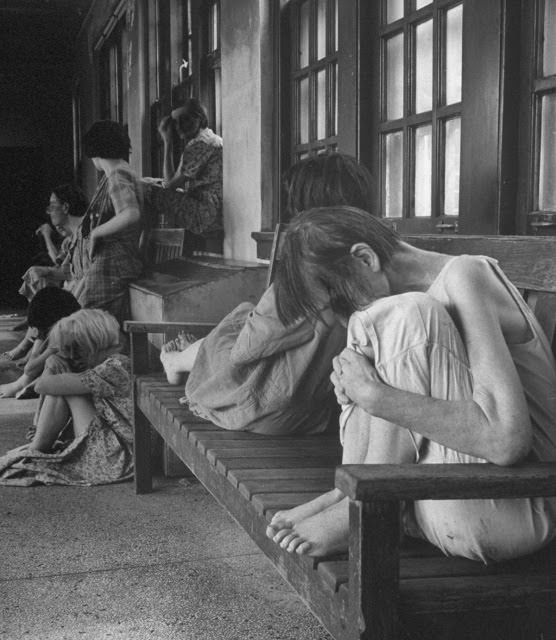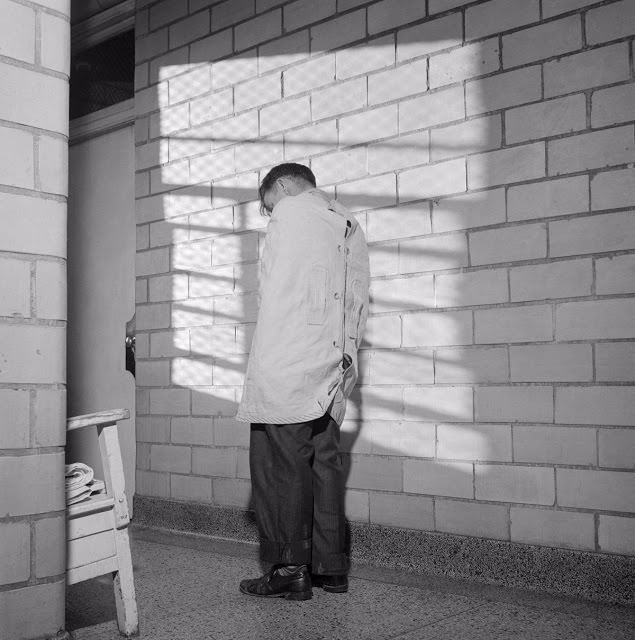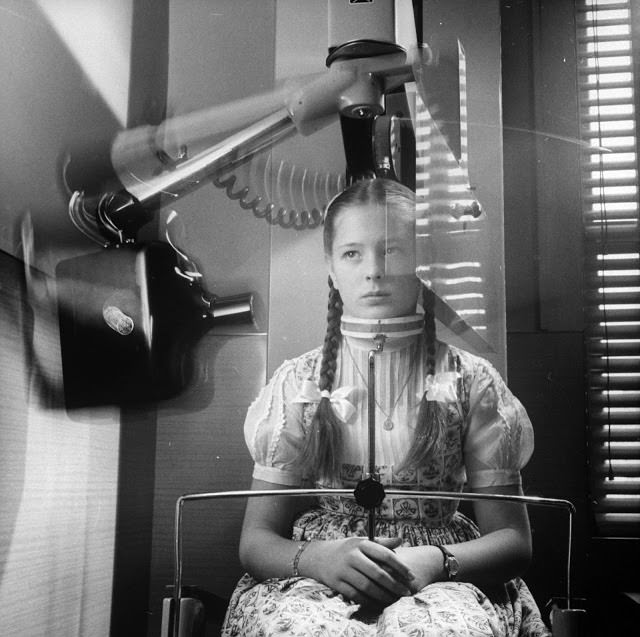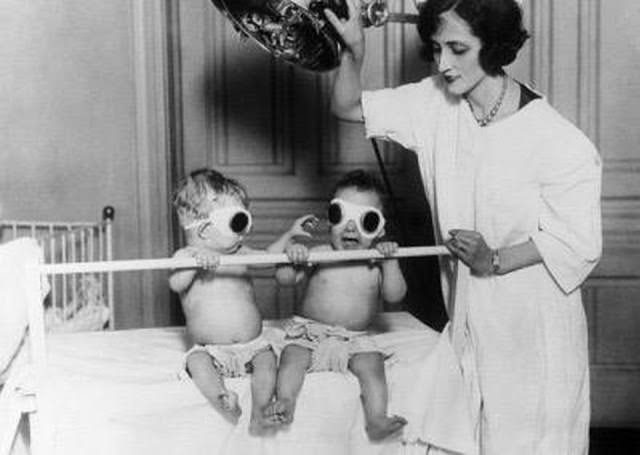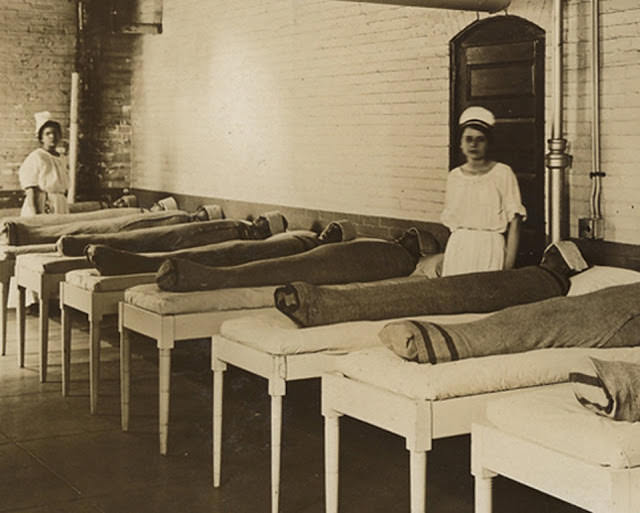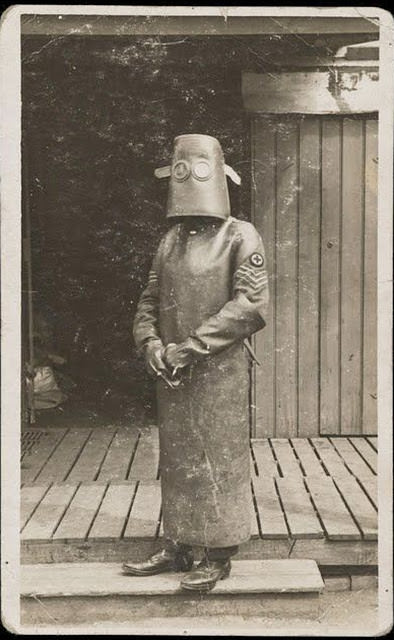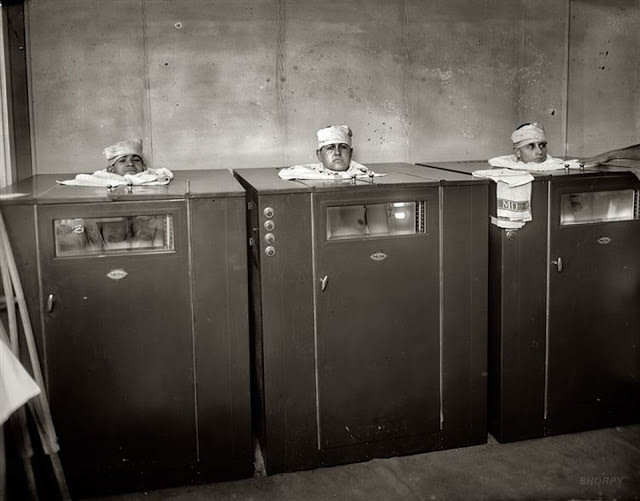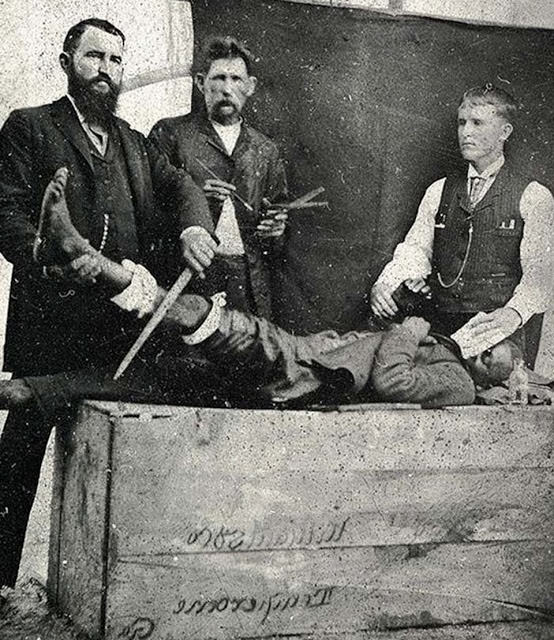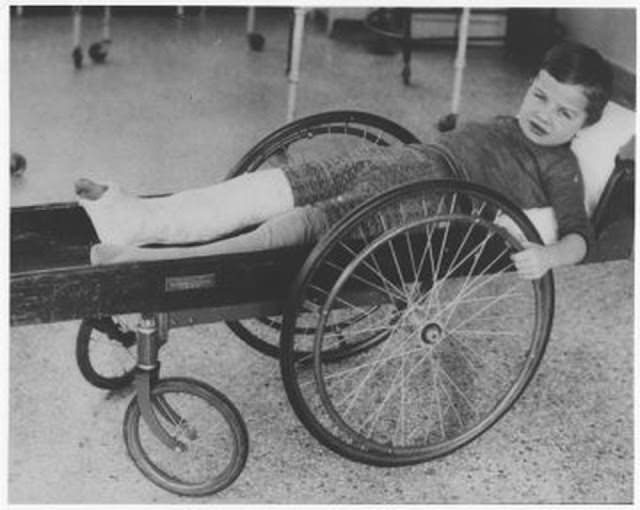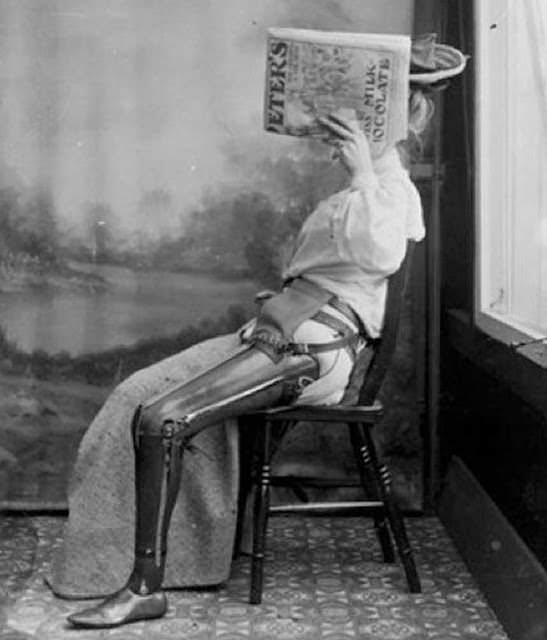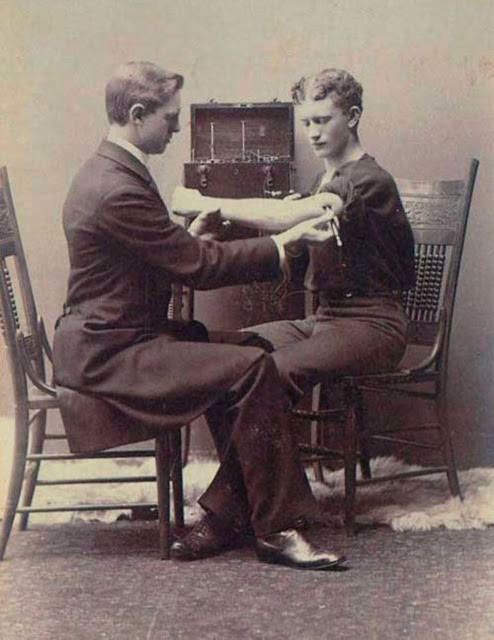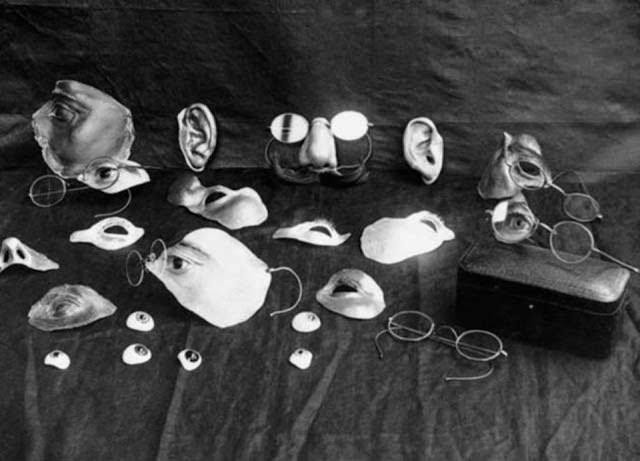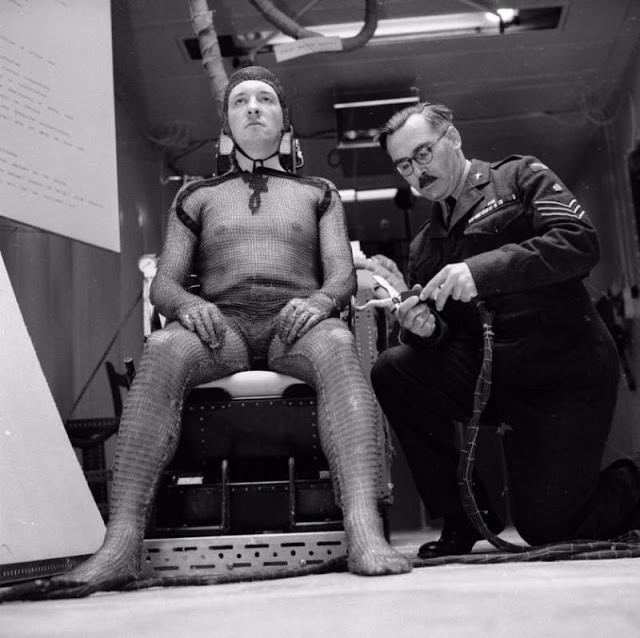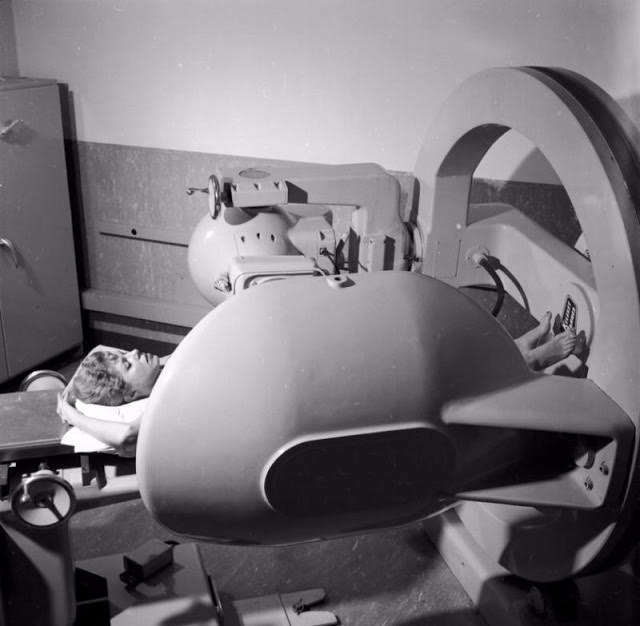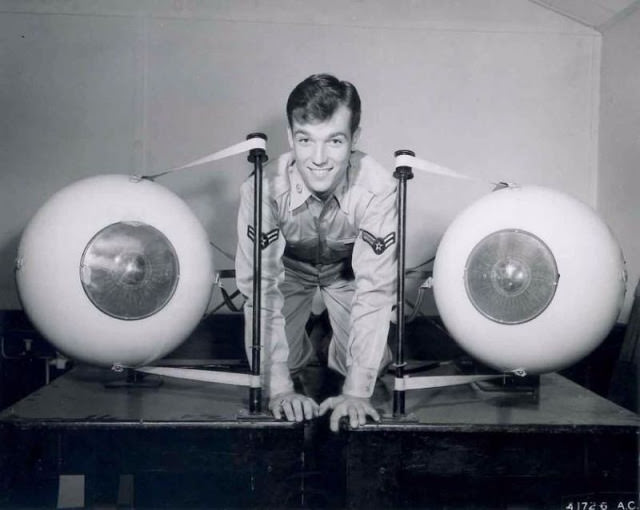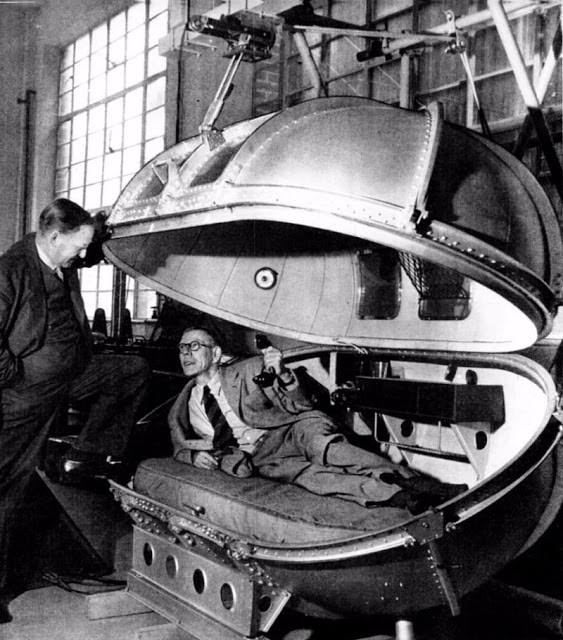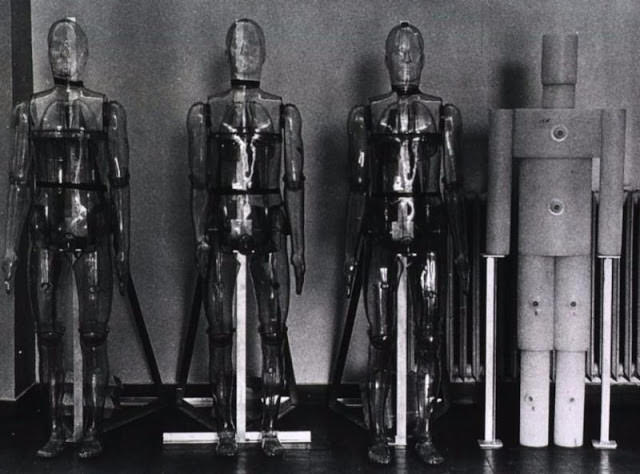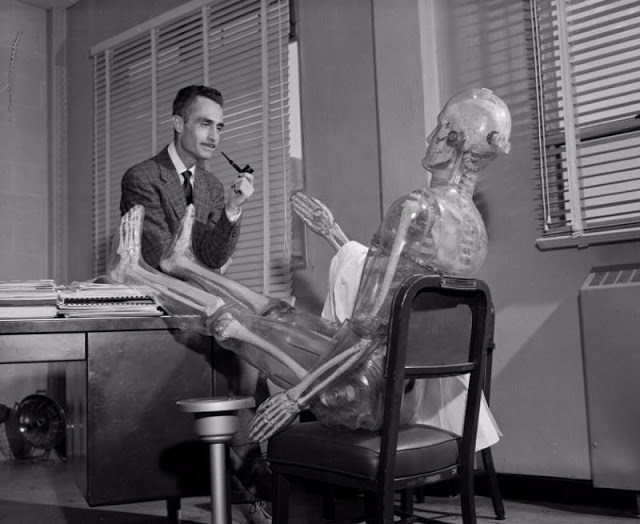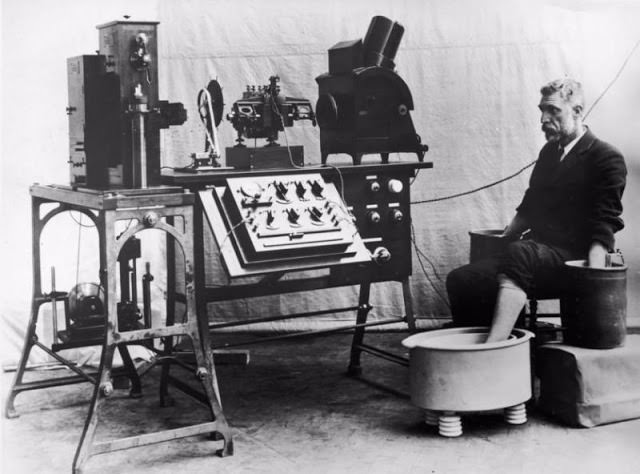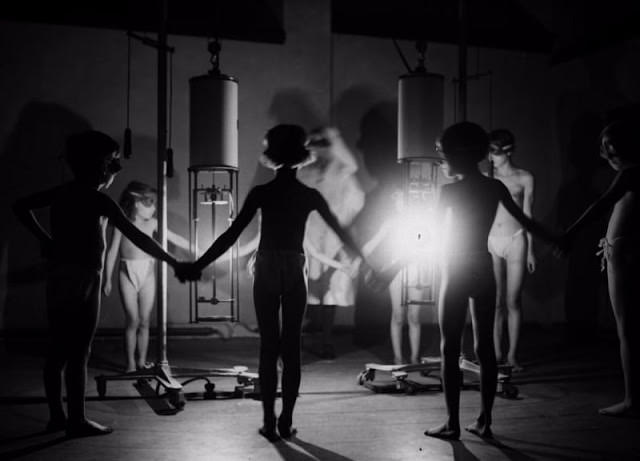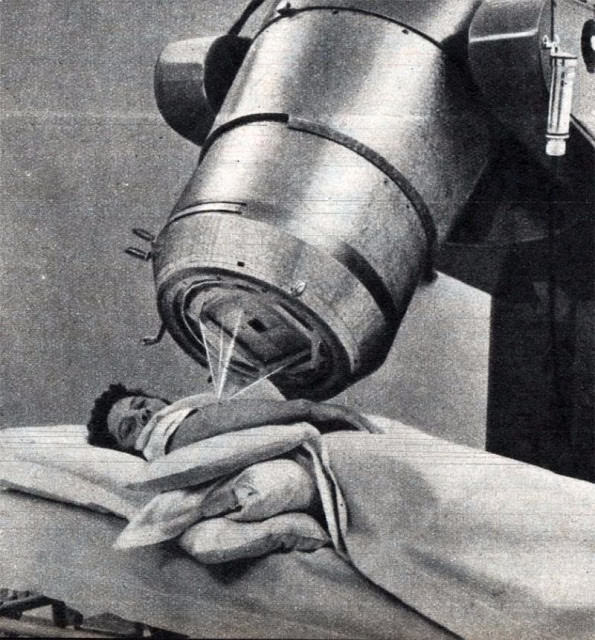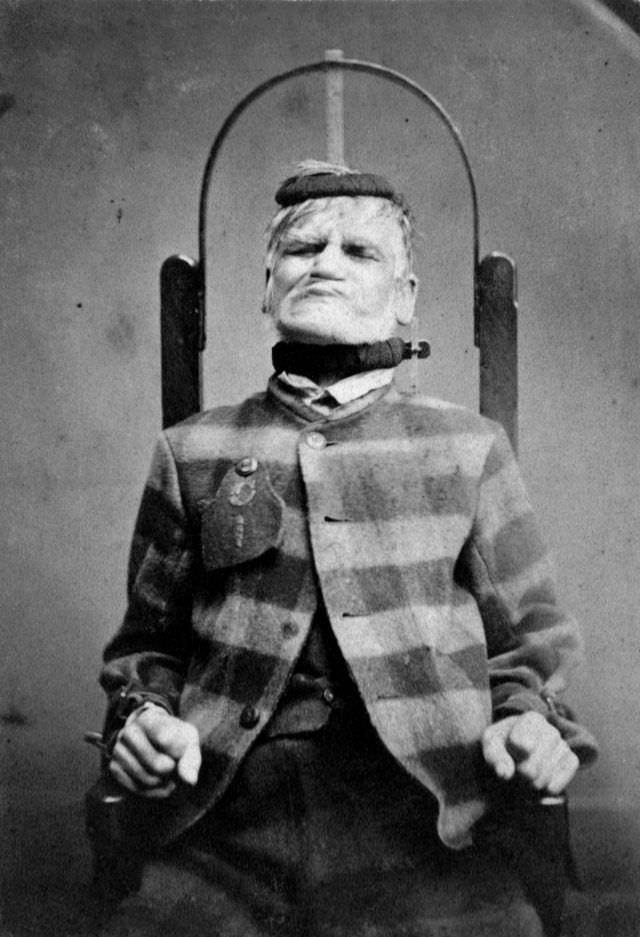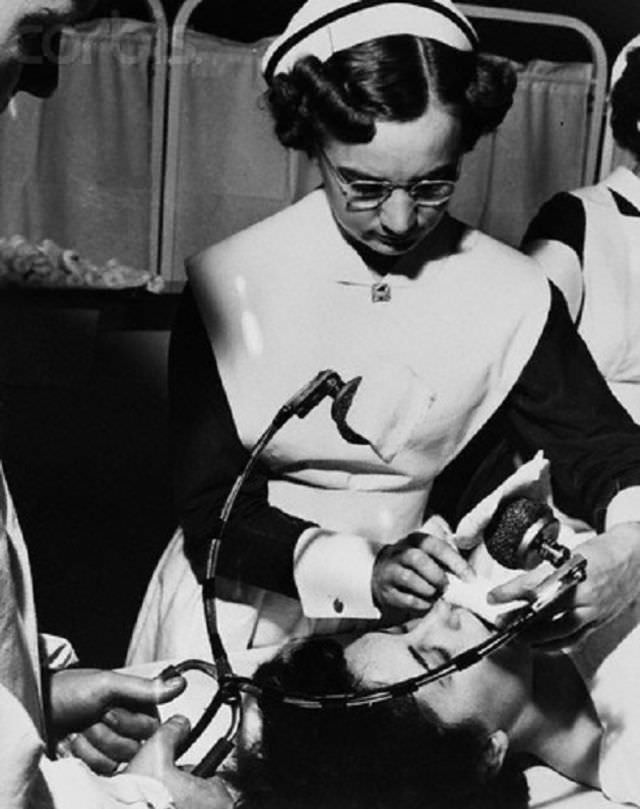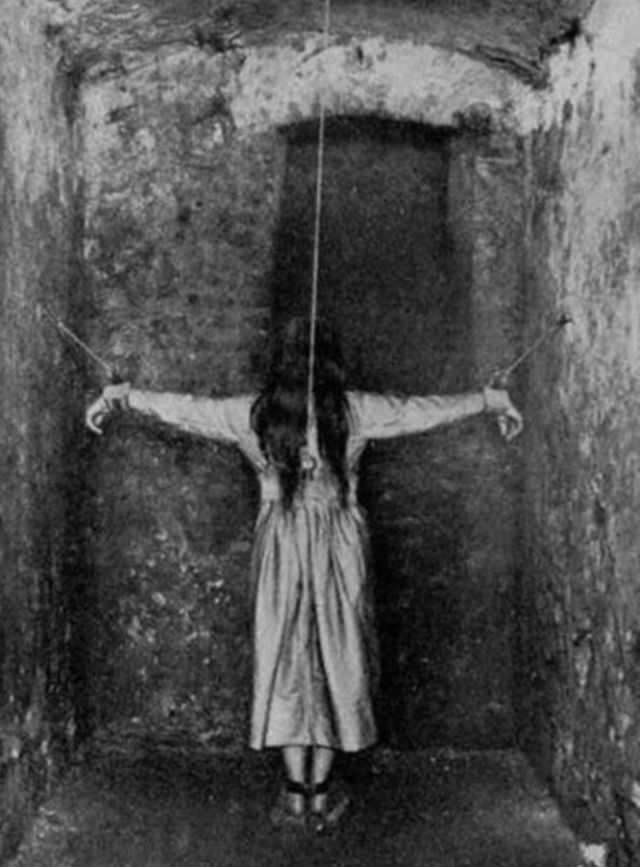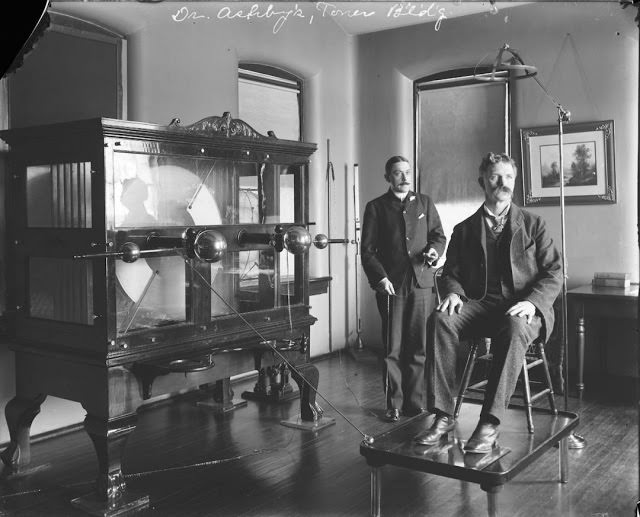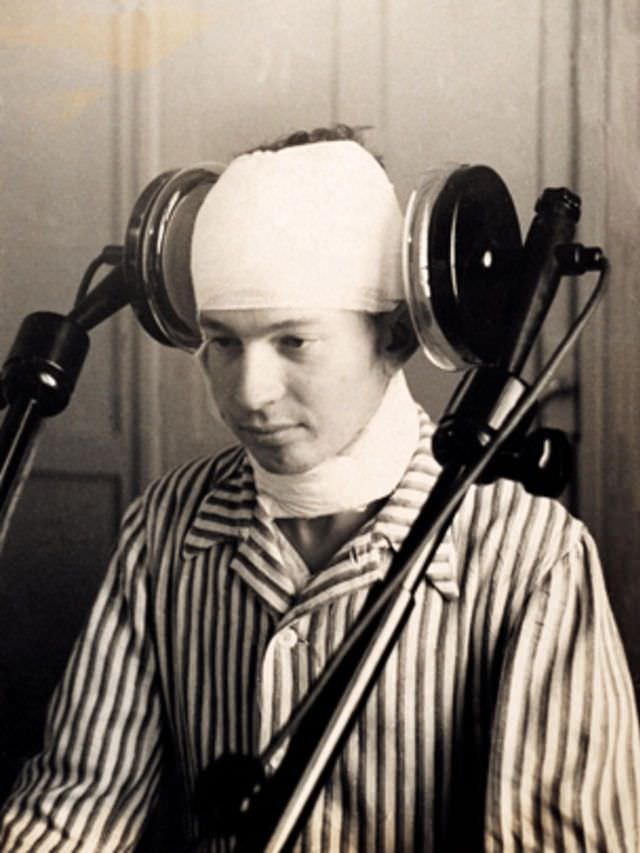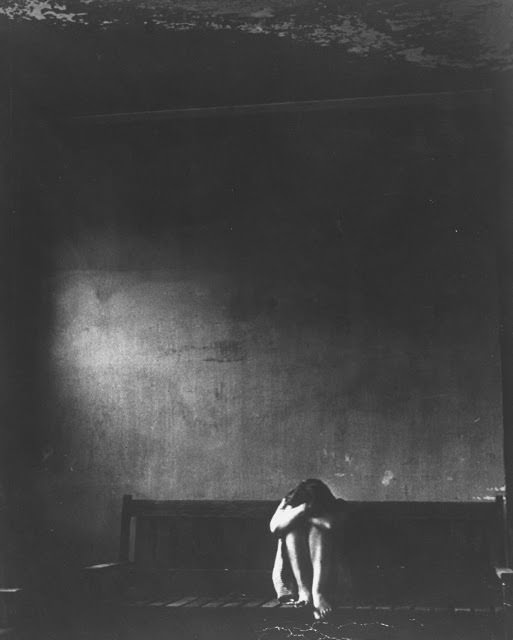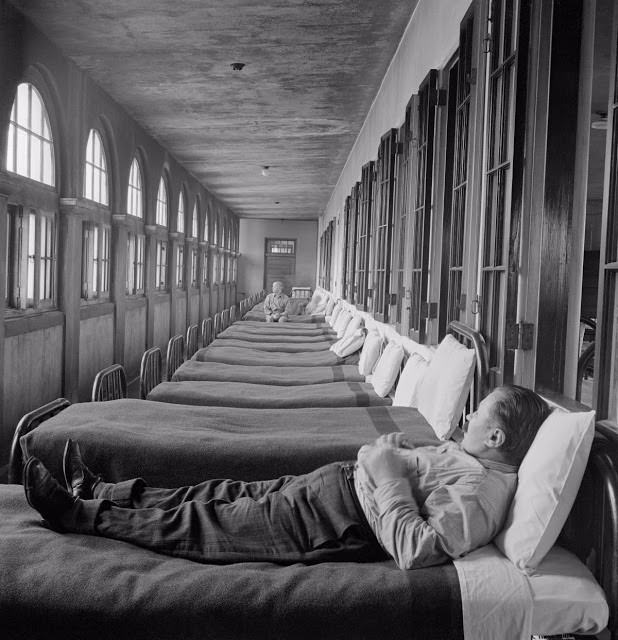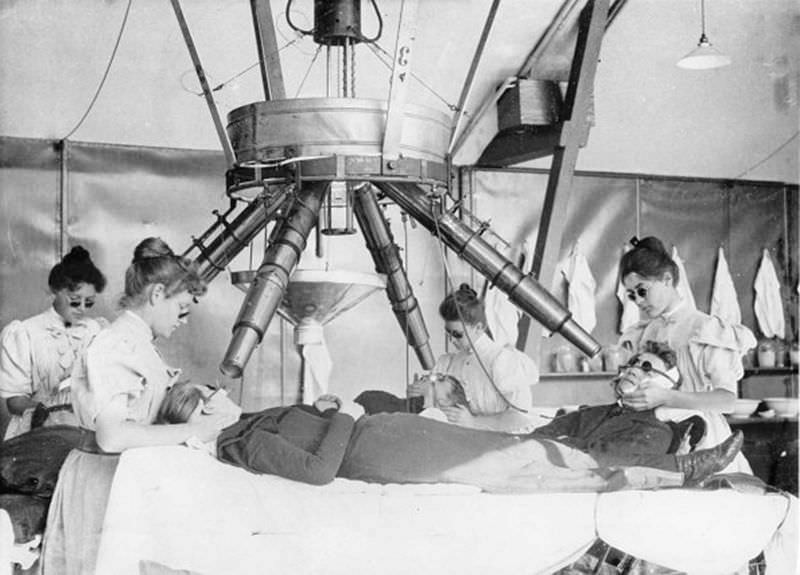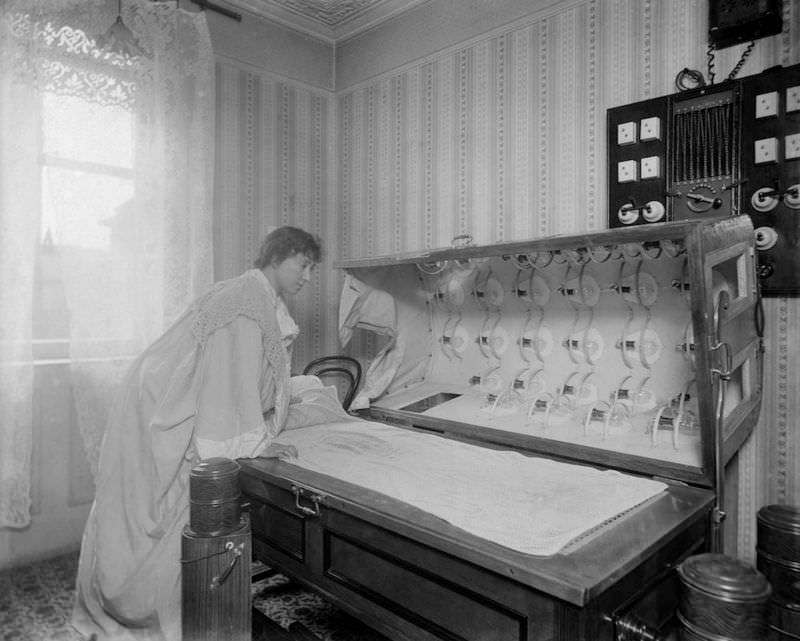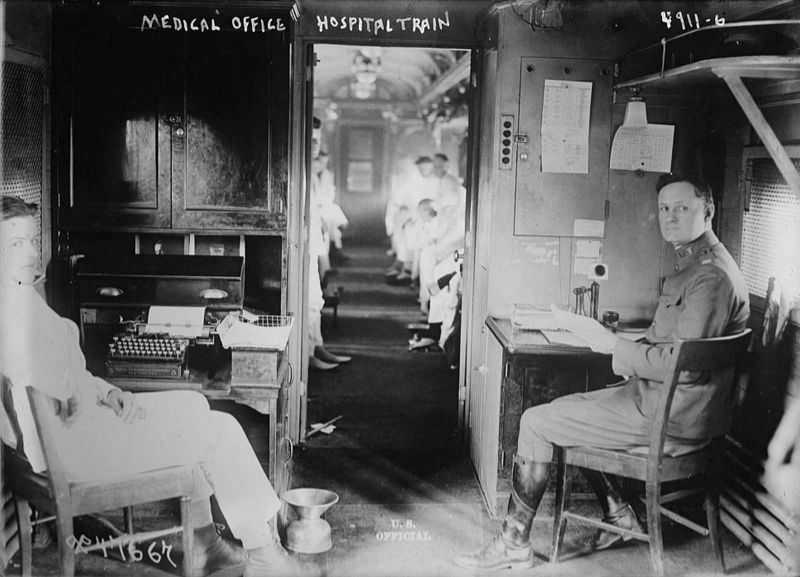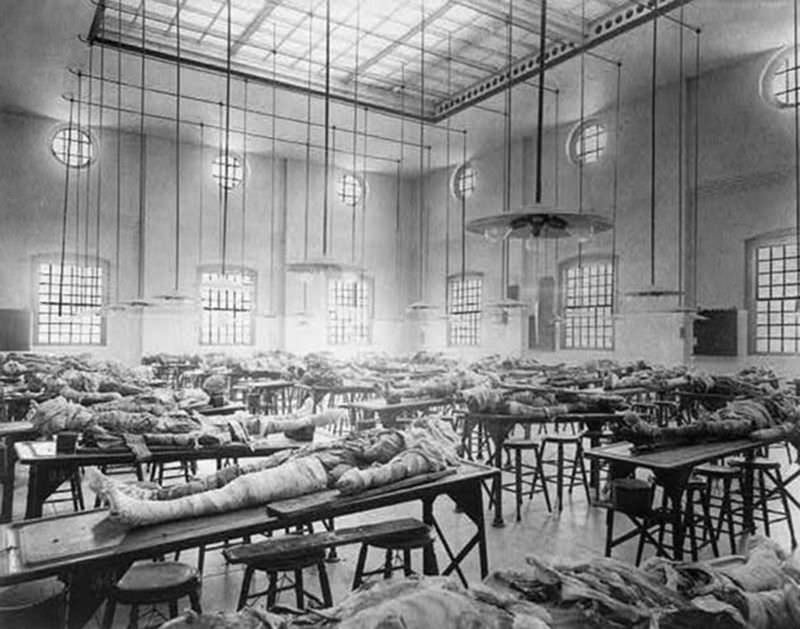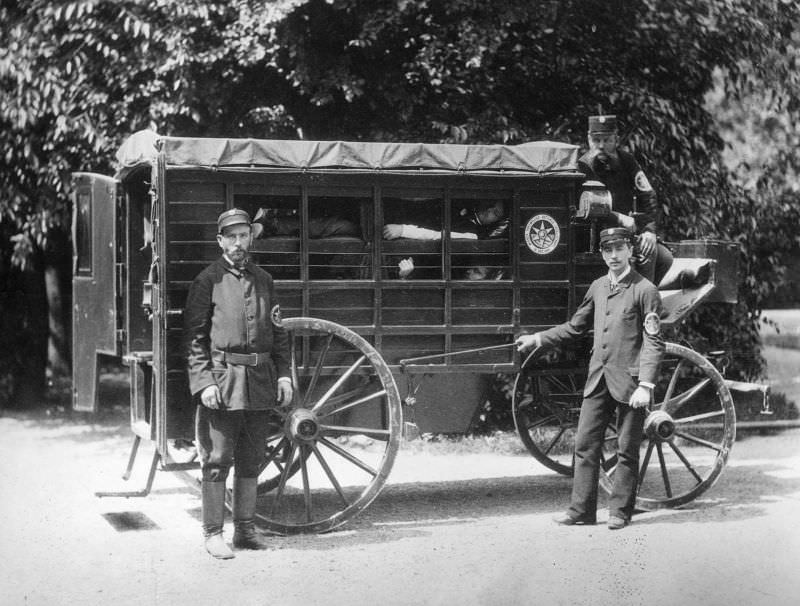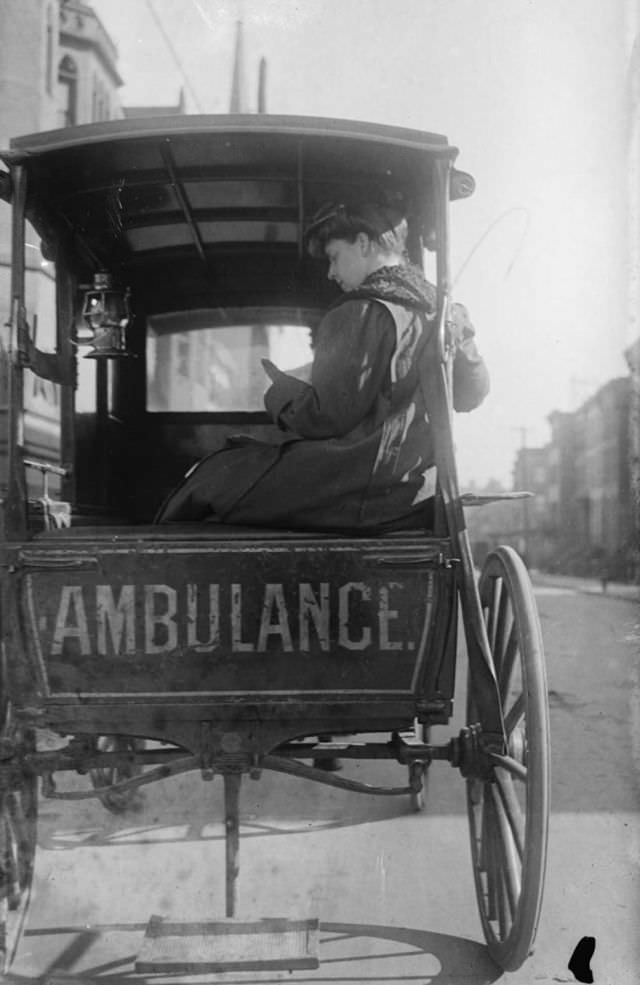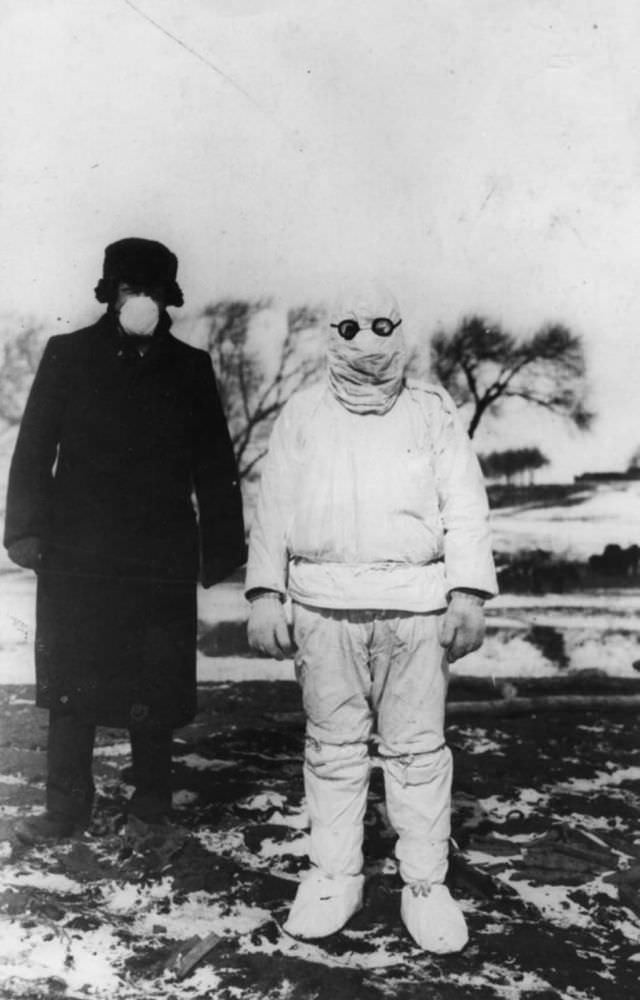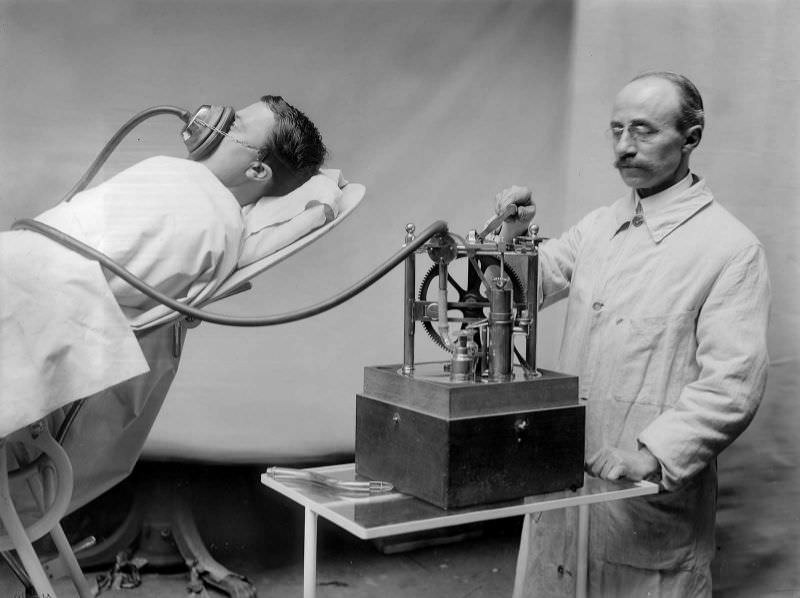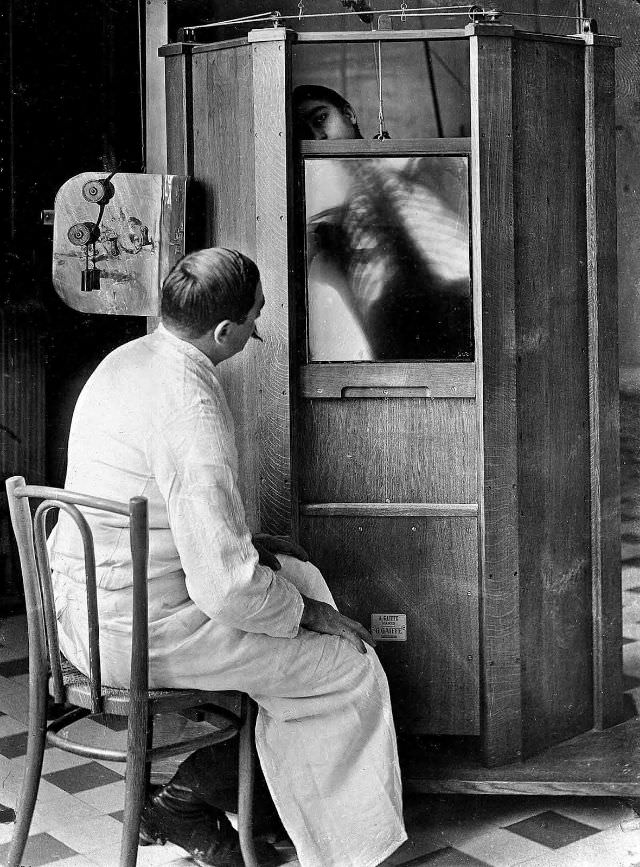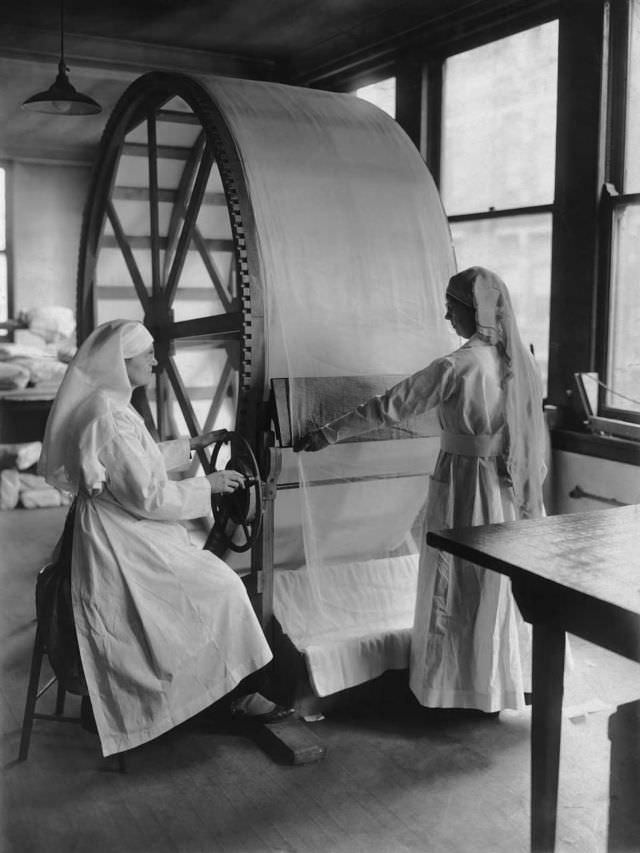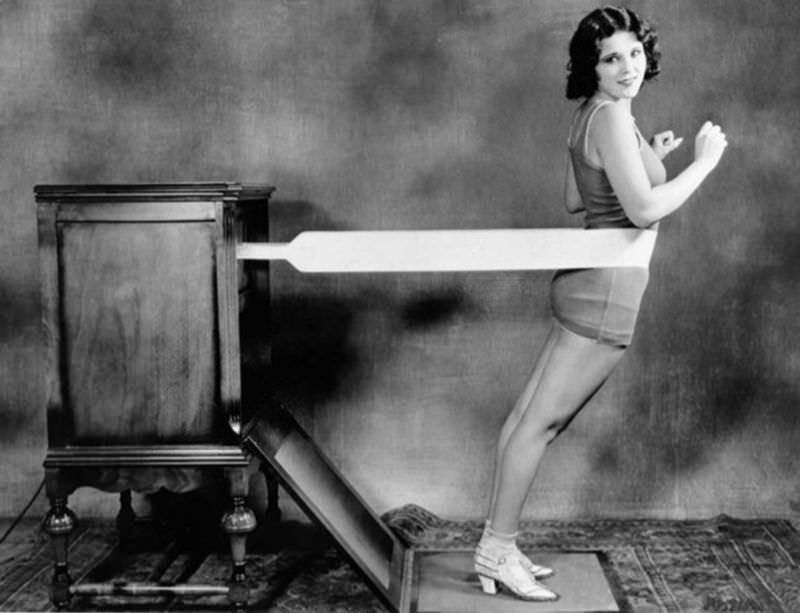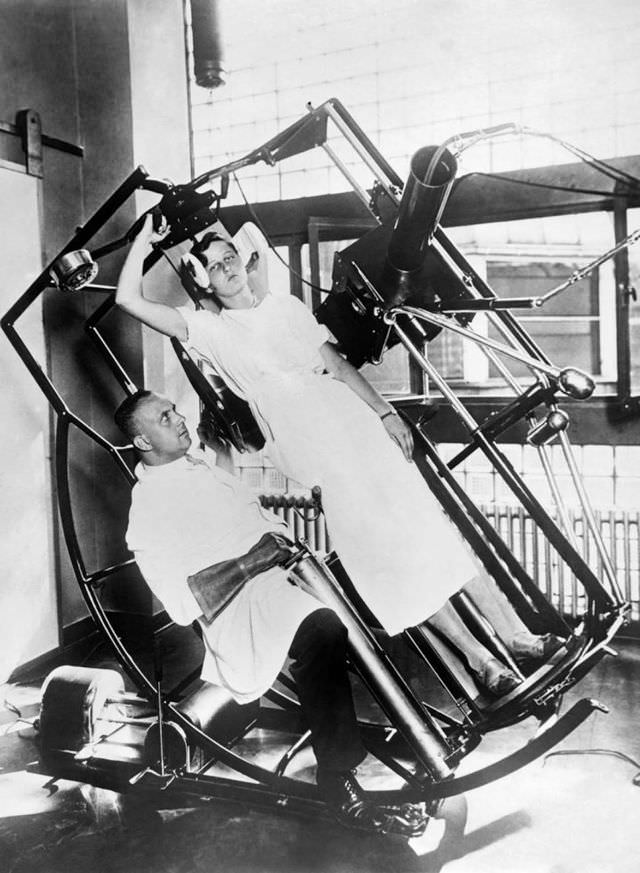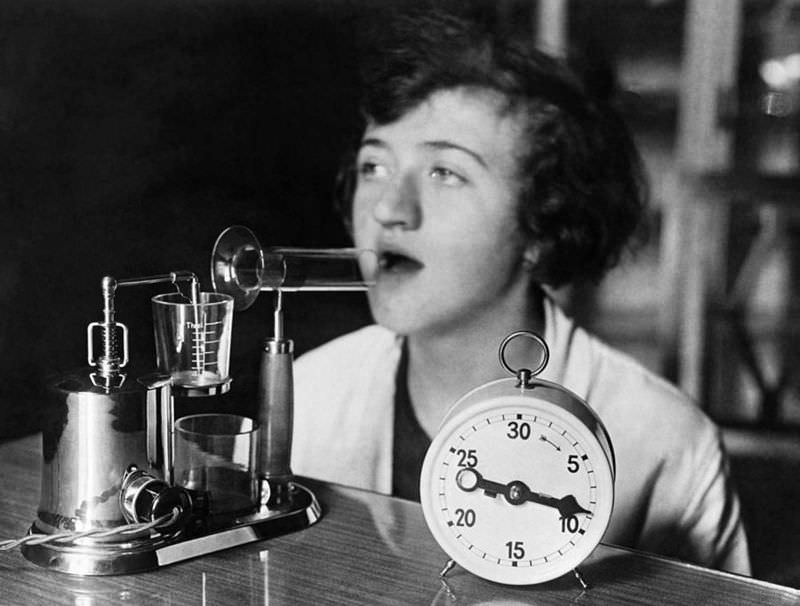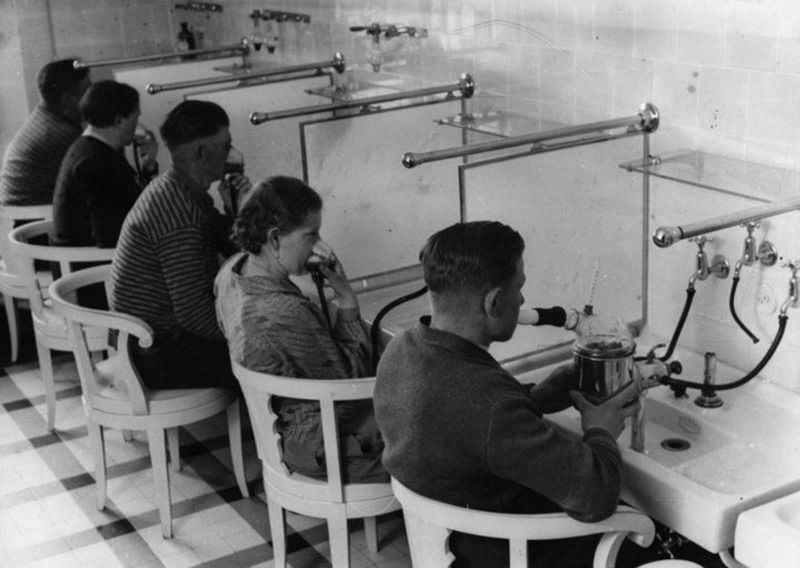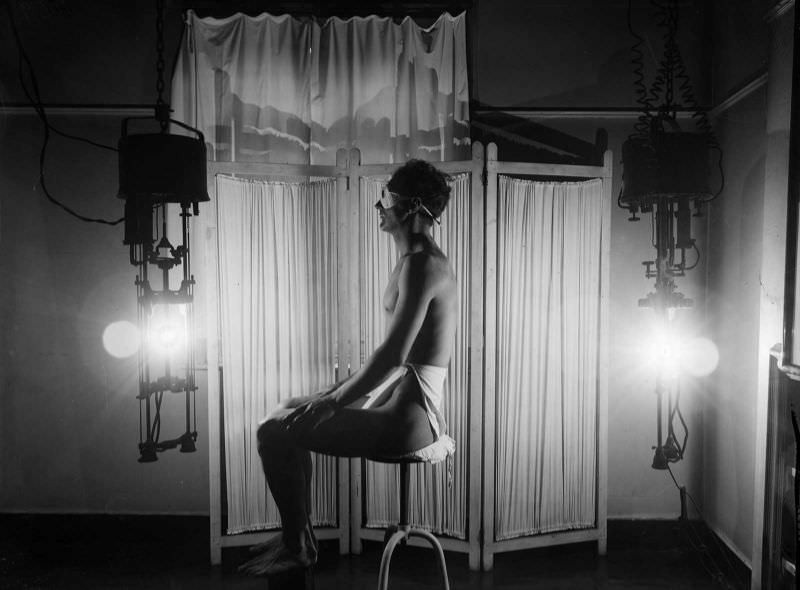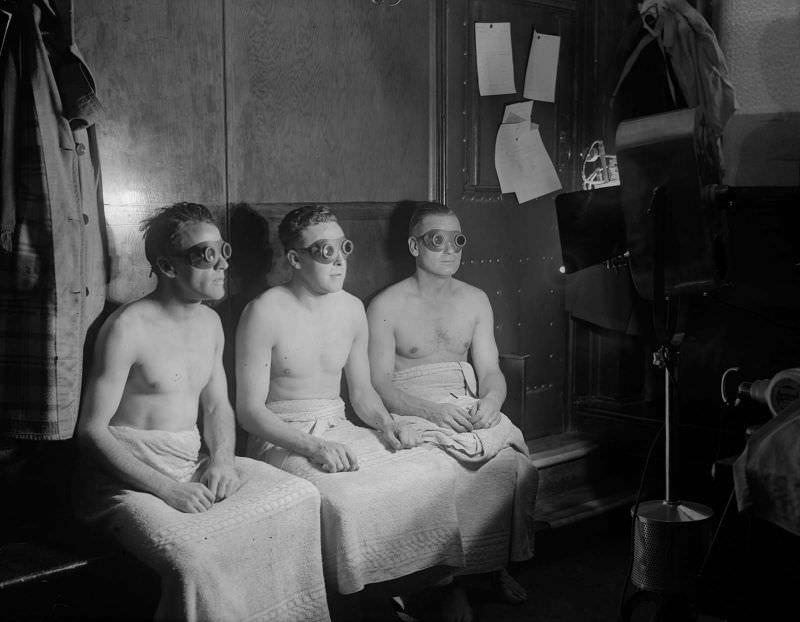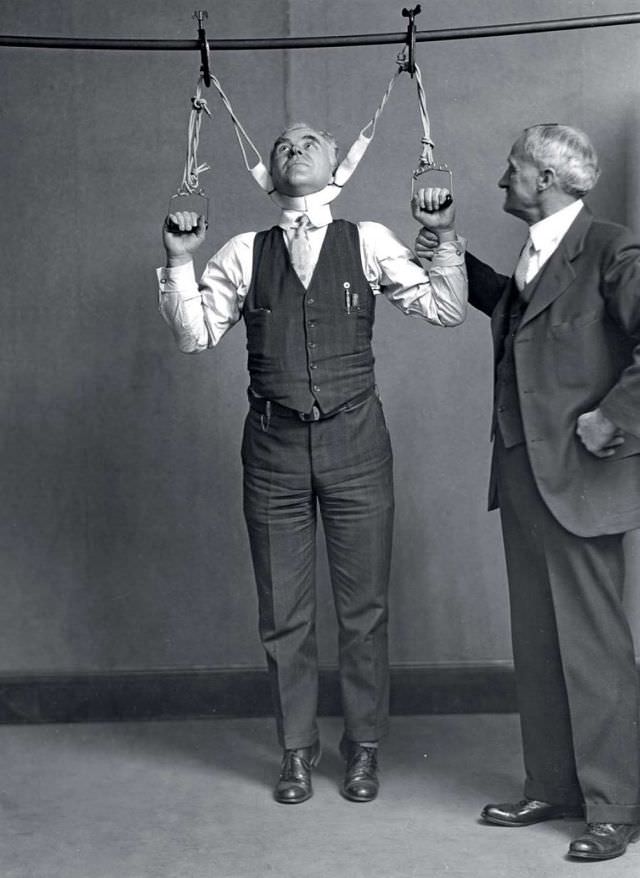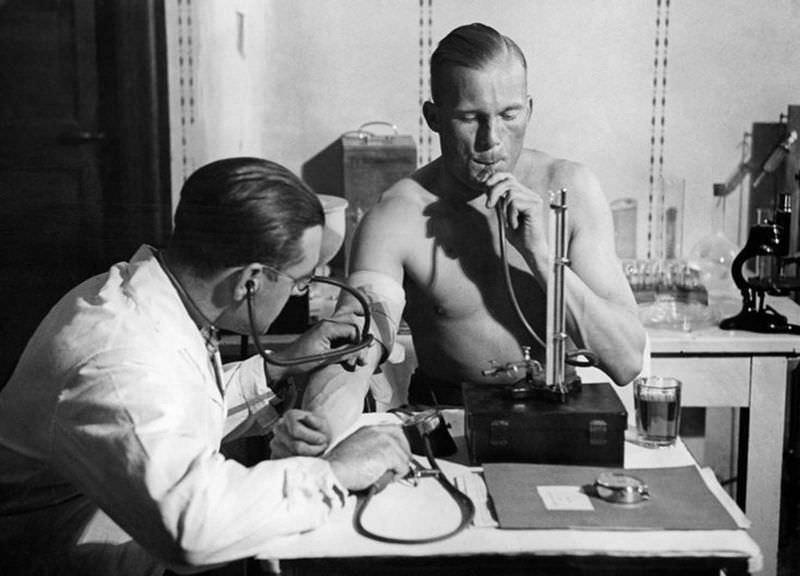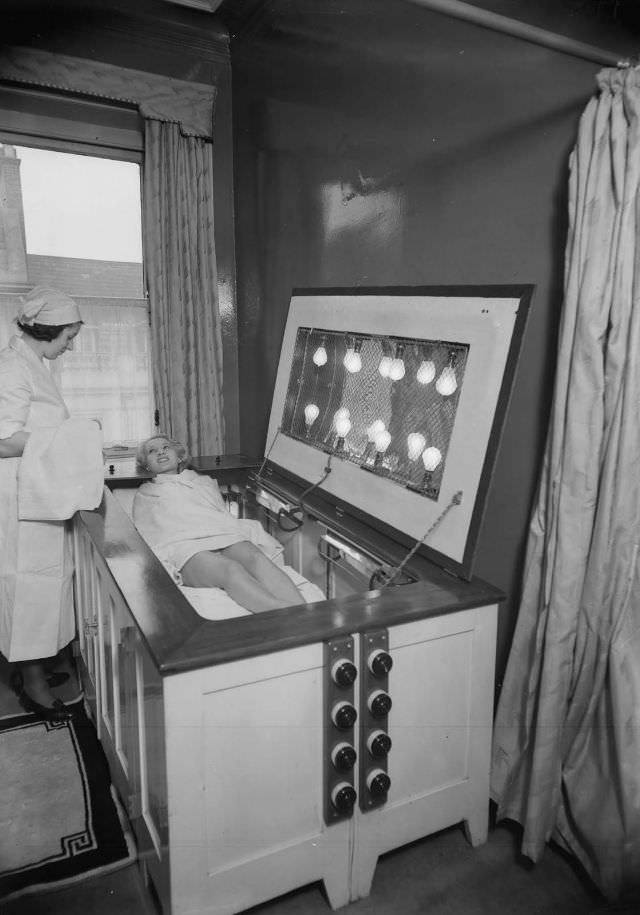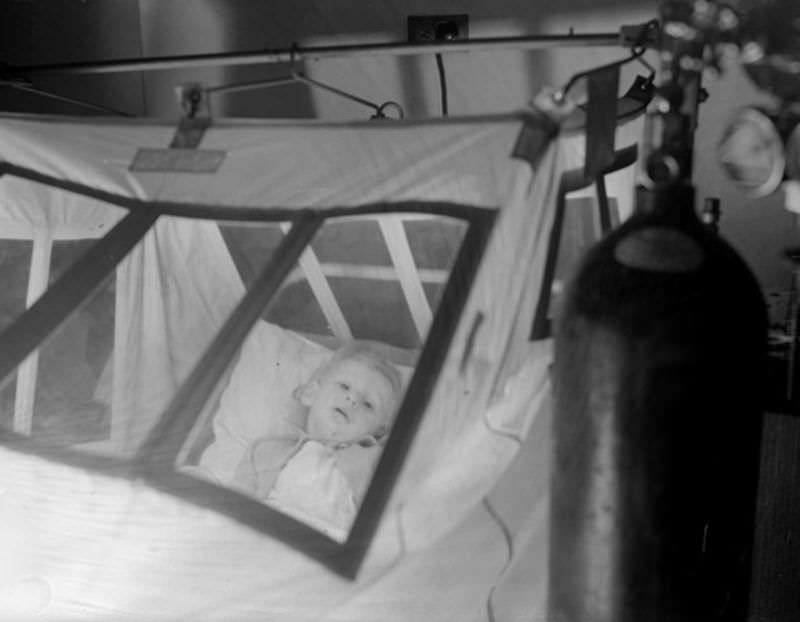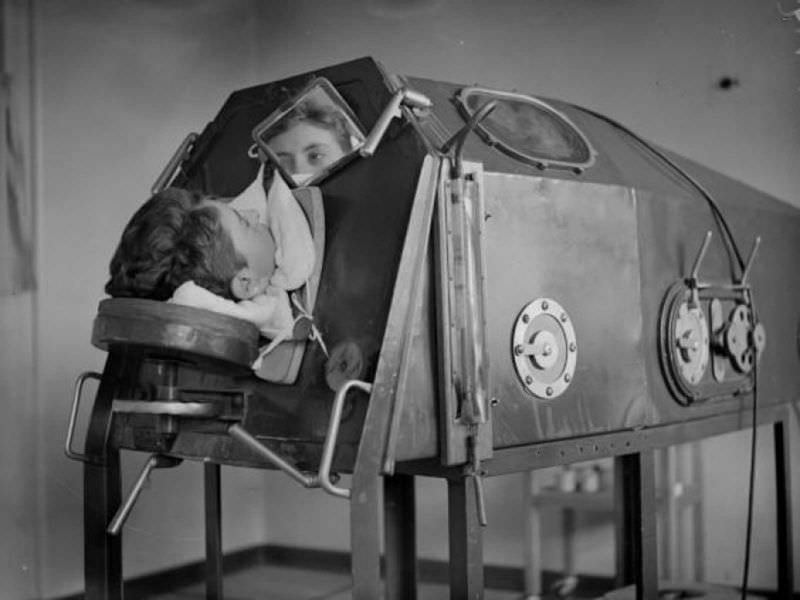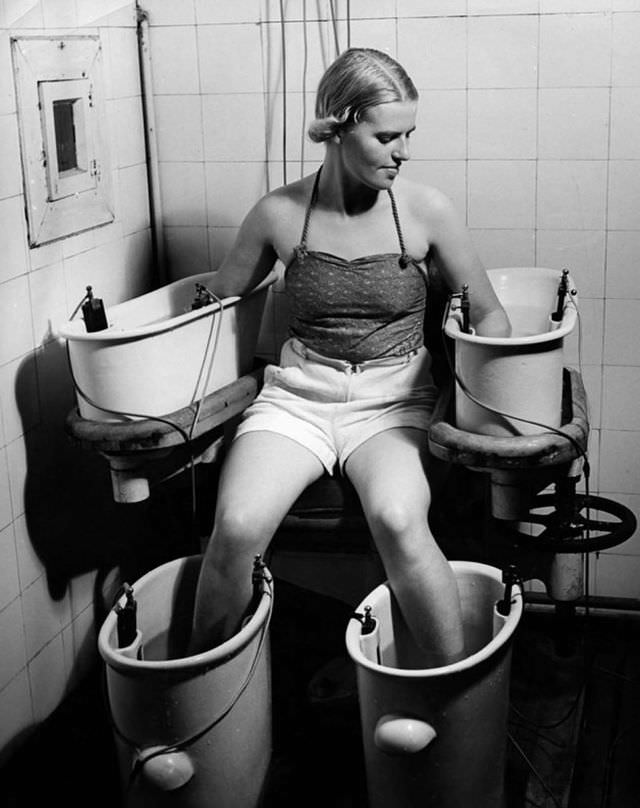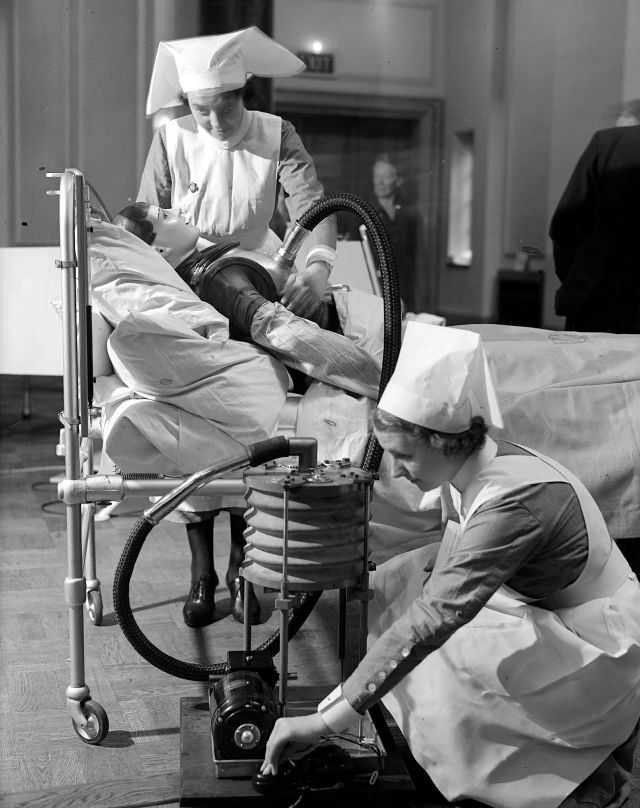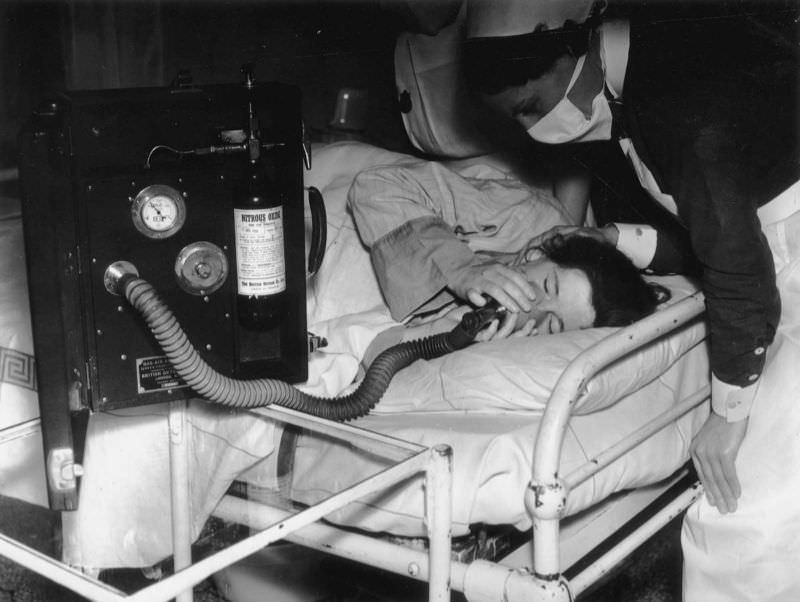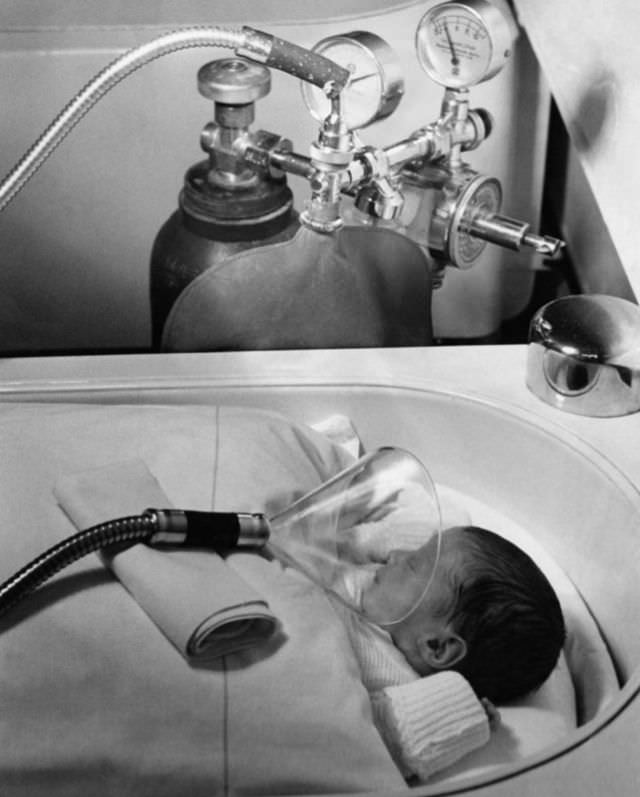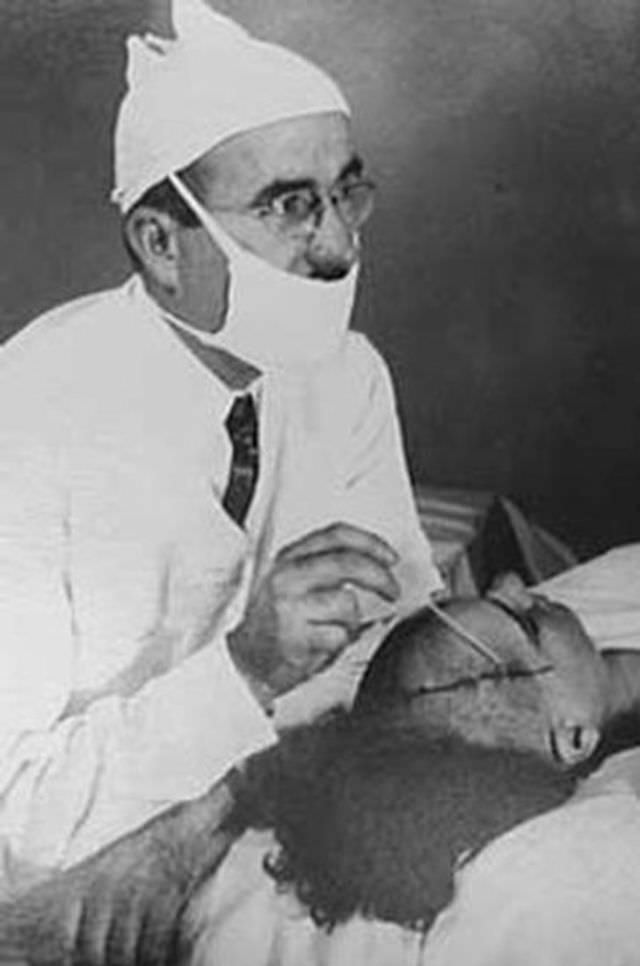With modern medicine and medical equipment miracles, we can transplant an organ, and the patient doesn’t feel anything during the procedure. However, this was not possible before; for some patients, the cure was often as harrowing as the disease. Even when the development of new drugs and the early days of surges and operations, they were not as effective and painless as they are now. The treatment was expensive, and patients were not treated properly; some diseases were incurable, and the patients suffered until death. These photographs depict the horrible procedures of treatment, terrifying medical instruments, and haunting conditions of hospitals from the past.
#1 Stacking up polio sufferers in a multi-person iron lung, circa 1950.
#2 A physician adjusts the beam path of the 2,000,000 volt Deep Therapy X-Ray Machine used to treat cancer at the Francis Delafield Hospital in New York City.
#3 Mental patients participating in Dance Therapy in New York State Asylum, U.S in 1922.
#4 Psychograph, a phrenology machine to measure the shape of head from the early 20th century.
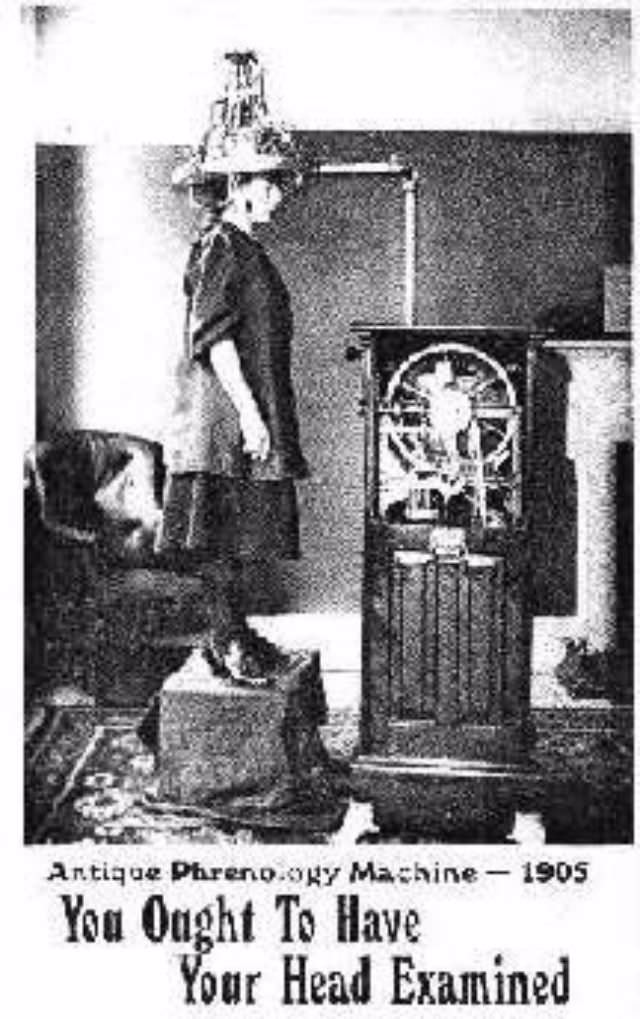
The machine consisted of 1,954 parts in a metal carrier with a continuous motor-driven belt inside a walnut cabinet containing statements about 32 mental faculties. These faculties were each rated 1 through 5, "deficient" to "very superior," so that there were 160 possible statements but an almost unlimited number of possible combinations. The "score" was determined by the way the 32 probes, each with five contact points in the headpiece, made contact with the head. The subject sat in a chair connected to the machine and the headpiece was lowered and adjusted. The operator then pulled back a lever that activated the belt-driven motor, which then received low-voltage signals from the headpiece and stamped out the appropriate statement for each faculty consecutively.
#5 This is how the brainwaves were measured in the 1940s.
#6 Bergonic chair for giving general electric treatment for psychological effect, in psycho-neurotic cases, 1910s.
#7 Women receiving radium therapy in the Serbian Psychiatric Hospital in Serbia in 1907.
#8 Lewis Sayre treating scoliosis, checking the curvature of the spine.
#9 Dr. Clark’s Spinal Apparatus, circa 1878, one of the more bizarre and least practical treatments for scoliosis.
#10 This is how tooth extraction was done.
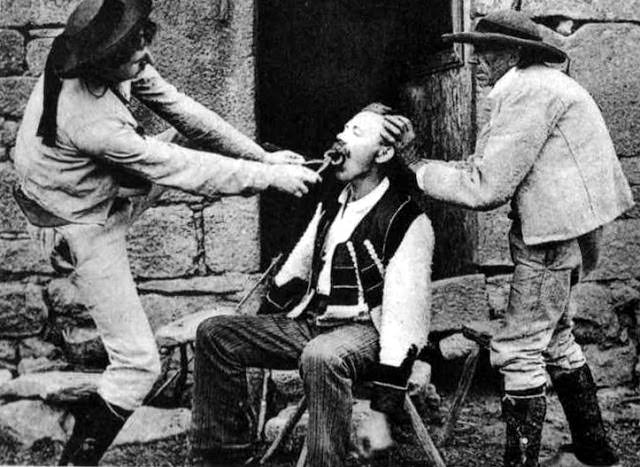
If you think going to the dentist today is scary, imagine a guy with a bloody apron approaching you with a pair of forceps, a pen knife, and no anesthesia. The early days of dentistry were beleaguered by a lack of knowledge and a belief that before anything could get better, blood had to flow.
#11 The latest X-ray apparatus being operated by an radiologist wearing the old-type protectors which are no longer necessary with modern apparatus. Radiological exhibition. Central Hall. Westminster, 1934.
#12 A portable respirator, or iron lung, designed to enable patients to recuperate at home, 1955.
#13 Dr G. H. Byford stands under an optokinetic drum wearing a contact lens with a miniature lamp cemented to the lens, during an experiment to investigate the reflex movements of the eyes and their association with visual illusions, at the RAF Institute of Aviation Medicine in Farnborough, 1960s.
#14 Roentgen steed, designed to hold children as they sit for chest X-rays, 1957.
#15 This old man is sitting in a machine that is used to stimulate blood circulation in the legs.
#16 Electro-retinogram: apparatus devised to measure the electric potential of the retina.
#17 A woman inside an Electric Bath at the Light Care Institute 1900s.
#18 A woman wearing a flu mask during the flu epidemic after the First World War.
#19 A “Lunatics Chair” given to patients who had poor behavior or wild outbursts in a Dutch mental hospital in 1938.
#20 Patients wrapped in large wet towels with wet cloths on their heads for hydrotherapy (continuous showers, baths and being wet) in St. Elizabeths Hospital in Washington, D.C. in 1886.
#21 Mechanical slapping massage device at BC sanitarium.
#22 Forgotten patients were left to sit around in corridors at the US hospital, 1940s
#23 A man constrained in a straight jacket stands alone.
#24 X-ray machine which circles head to take panoramic picture of teeth, eliminating usual mouthful of film, 1960.
#25 Dr. Leonid Rogozov who cut out his appendix because he was the only physician on station.
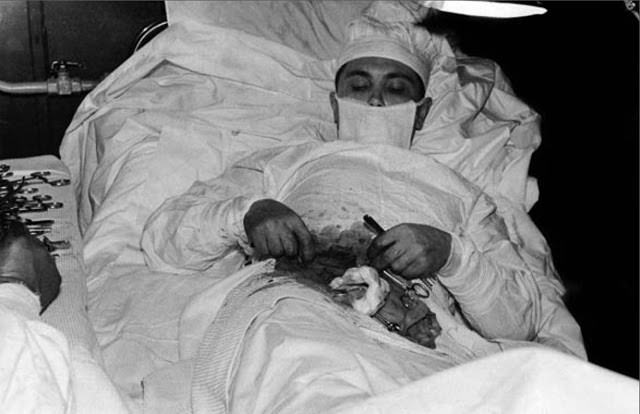
He diagnosed himself with acute appendicitis but being the only surgeon on the team, he had no help. He made a 12 cm cut through which he found the appendix. After 5 days the doctor felt good, and after 7 days he removed the wires which had been used to sew up the body. His name: Leonid Rogozov.
#26 Tanning babies at the Chicago Orphan Asylum to offset winter rickets in 1925
#27 High frequency electric currents in medicine and dentistry from the early 20th century.
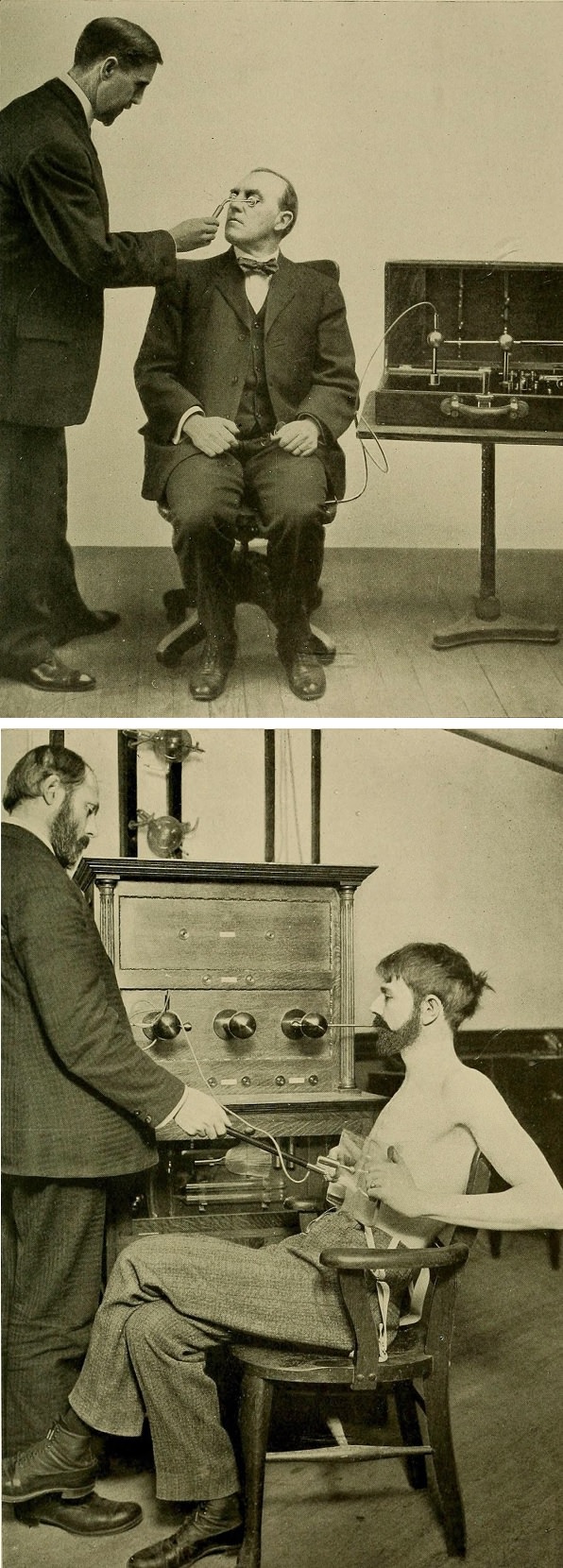
Although the use of electricity to treat physical ailments could be seen to stretch back to the when the ancient Greeks first used live electric fish to numb the body in pain, it wasn’t until the 18th and 19th centuries – through the work of Luigi Galvani and Guillaume Duchenne – that the idea really took hold. Monell claims that his high frequency currents of electricity could treat a variety of ailments, including acne, lesions, insomnia, abnormal blood pressure, depression, and hysteria.


